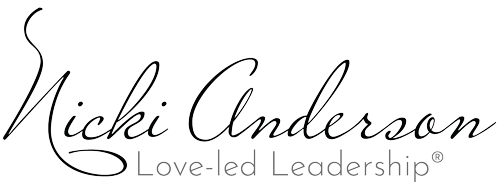For me, the heart of compassion is this: a loving response to what it means to be human. – N. Anderson
Welcome November
I love November. The smell, the chill in the mornings, the leaves changing and Thanksgiving. The first three is Mother Nature at work, the last, well, that’s a man-made thing. It’s a holiday that brings family, friends and complexity into the celebration of gratitude. Though I love Thanksgiving for its simplicity, food and gratitude, it is also a time when we’re reminded of relationships that aren’t always easy.
This November, Love-led Leadership™ will be focusing on compassion. (If you’re not following me on LinkedIn, Facebook and Instagram, I encourage you to do so to keep up with my reflections.) During the holidays, I think it’s a perfect time to see how compassion is showing up for you.
There’s a common misconception that compassion is just a kind act or an emotional response. We imagine it as helping someone in need, offering a comforting word, or supporting a struggling team member. While all of that can be compassionate, true compassion, especially in Love-led Leadership, goes deeper. I’ve come to believe that compassion is not something we do, it’s who we are.
Leading with a Compassionate Heart
In Love-led Leadership, compassion starts with how we see others, hold space for their experiences, and engage with less ego and more love. Think about an interaction, perhaps a difficult one in which you’re asked to show compassion:
- Were you making space for them, or trying to control the engagement?
- Were you listening to understand, or to win the argument?
- Were you seeing their humanness with openness vs. judgement?
The Quiet Power of Compassion
Compassion doesn’t mean that when we or others are being hurt or ridiculed to ignore it, quite the contrary. It means we still hold people accountable while holding them with dignity. That’s not easy. But often, it’s that strong, steady presence that creates the conditions for real change, the kind rooted in love, not shame.
In my experience I have found that, shame isolates, silences, and closes people off. While compassion connects, softens, and invites engagement. It says, “I may disagree and perhaps don’t like what you did, but you’re still human and worthy.” I know, I know, this is crazy, especially when anger is bubbling up. But with time and practice, that response can be a turning point. Not a soft escape from hard realities, but maybe, just maybe a deeper path toward healing and transformation.
Here are some things to keep in mind this holiday season:
- Always take a breath before responding to a question. AND, you don’t always have to respond. Disengaging without blame or drama can lead to honest repair later.
- I care about you, so let’s turn our attention to something more meaningful or I care about you, let’s change the conversation so we can both enjoy the celebration.
- Remember that compassion includes you too. If you’re not comfortable, disengaging is a form of self-compassion.
Final Reflection
How can we better lead a compassionate heart, one that is curious, open, present, and willing to stay close even when it’s hard?
Just remember that practice makes progress and compassion is a way of being, and that “being” can change everything.
Here’s to Leading with Love,
Tags: belove, compassion, compassionate conversations, family, friends, holidays, leadwithlove, leadwithpurpose, love, love-led leadership, relationships, thanksgiving